「老外看疫情」国际金融专家:疫情是检验与中国商业关系的试金石(中英双语)
本文大概2100字,读完共需3分钟
本文为“老外看疫情”系列文章的第14篇,作者戴若•顾比(Daryl Guppy)系澳大利亚中国工商业委员会董事会成员,丝绸之路国际商会澳大利亚代表,国际金融市场技术分析专家。本文由杨清清、张灏筠翻译,刊于3月4日中国网;英文版刊于2月29日CGTN。
新冠肺炎疫情的来临意味着你与中国以及你的中国同事的商业关系到了关键的时刻。你的应对方式决定了在危机过后,你在中国的业务将如何发展。你的反应决定了你的业务在中国有多受欢迎,以及你如何有效地拓展你的人际网络。
从国家层面看,澳大利亚和新加坡等一些国家的应对方式是关闭边境。来自中国的直飞航班已经停飞,中国护照持有者无论居住在哪里都被拒绝入境。这些禁止入境的措施与世界卫生组织的建议直接矛盾。澳大利亚和其他一些西方国家一样,在全国范围内更注重执行将本国公民从武汉空运回国的“救援”任务。虽然这些空运也利用机会运送捐赠的医疗用品,但有限的航班主要是为了撤侨。
这一政策在澳大利亚国内民众中很受欢迎,但也引发了一种潜在的种族主义,而媒体的报道往往会强化这一点。这些被“解救”的澳大利亚人最初被隔离在距离悉尼5300公里的圣诞岛上的一个离岸营地中,这个营地之前被用来关押在澳大利亚寻求庇护的难民。这毫无必要地加深了人们对新冠病毒是一种灾难性传染病的看法。后来,在距离悉尼2000公里的澳大利亚最偏远的首府达尔文隔离了这群人。
欧洲和韩国仓促地应对新冠病毒的蔓延,与中国当局采取有效和审慎的应对措施形成鲜明对比。世界卫生组织总干事高级顾问布鲁斯•艾尔沃德建议利用中国的专业知识来制定完善的管理计划,但似乎有些国家已经措手不及。虽然政治制度不稳定的国家更难实施严格的检疫管理,但也不是不可能。
不幸的是,一些国家的反应助长了仇外和种族主义,因此关键问题不是“国家的反应是什么?”,而是“我们个人的反应是什么?”
这种个人的反应超越了任何国家的反应或个人对更广泛行动的贡献,如非政府的慈善航班运送医疗设备。
人们普遍认为,与中国有业务取决于和其发展好的关系。长时间的午餐、无数次的茅台敬酒以及生意场上精心准备的礼品都证明了维持这些关系的重要性。但对中国以外的许多人来说,这种关系缺乏实质性内容。
只有像新冠肺炎疫情这样的危机才能对这种关系进行压力测试。当你被要求协助采购医疗设备、口罩、防护服和其他物品时,你会怎么做?直接拒绝援助会造成深深的伤痕。
你是否询问过你的主要联系人及其家人的健康状况,或你的询问是否很快转向了有关恢复供应和贸易的问题?贸易终将恢复,但如果你的问题显示出你对利润的担忧大于对健康的担忧,那么贸易条款可能会与以前不一样。
你说这是新冠病毒还是武汉流感或中国流感?你对术语的选择可能会对你未来的业务造成意想不到的损害,因为你的中国合作伙伴目前对西方媒体疫情报道中潜在的种族主义很敏感。
将你在街上和西方社交媒体上听到的评论与微信上的聊天结合起来。对你的中国同事来说,这是一个国家紧急事件,公民有义务协助,遵守检疫指示,避免传播谣言和错误信息。中国当局所采取的措施有着明显的民族团结和自豪感。
中国对新冠肺炎疫情的应对不同于对SARS的应对。这是对政治成熟度的一次不请自来的考验,然而却遭到了边境关闭和种族主义的攻击,尽管世界卫生组织称这些措施是不必要的,且适得其反。
中国的应对措施与源自美国、墨西哥边境地区的H1N1流感形成鲜明对比。H1N1流感感染了214个国家的160多万人,导致超过28.4万人死亡,死亡率为17%。所以,这是你与中国商业关系的关键时刻。如果你的关系经过测试,发现仅仅只是酒肉朋友,那么当中国经济恢复发展,你可以预期要把业务恢复到之前水平会更加困难。朋友帮助朋友,尤其是在危机时期,你的每一点贡献都会被感激和铭记。你也许做不了多少事情,但每一点都是有价值的,哪怕只是从改变态度和真诚询问中国同事的健康和安全开始。
﹌﹌﹌﹌﹌﹌﹌﹌﹌﹌﹌﹌﹌﹌﹌﹌﹌﹌﹌﹌﹌﹌﹌﹌﹌﹌﹌﹌﹌﹌﹌﹌﹌﹌﹌﹌﹌﹌﹌﹌﹌﹌﹌﹌﹌﹌﹌﹌﹌﹌﹌﹌
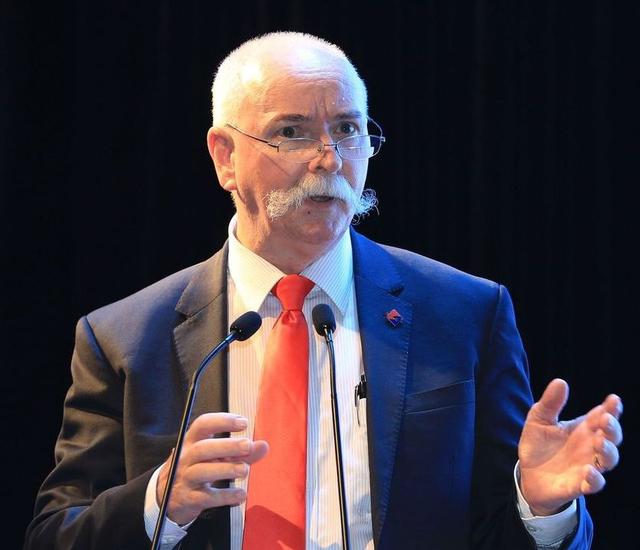
戴若•顾比(Daryl Guppy)
COVID-19 is crunch time for your business relationship with China
COVID-19 means its crunch time for your business relationship with China and your Chinese colleagues. How you respond determines how your China business will grow after this crisis has passed. How you respond determines how welcome your business is in China and how effectively you can expand your networks.
At a national level, some countries like Australia and Singapore have reacted by closing borders. Direct flights from China are stopped and Chinese passport holders are denied entry. These border closures are in direct contradiction to World Health Organization (WHO) advice. Australia, like some other Western countries, has been more nationally focussed on "rescue" missions to airlift their citizens from Wuhan. While these airlifts have also taken the opportunity to carry donated medical supplies, the limited flights are mainly about evacuation of citizens.
It's a policy that sells well to a domestic audience, but it also stokes an underlying racism that is often reinforced by media coverage. The Australians "rescued" were at first quarantined 5,300 kilometers away from Sydney in an offshore camp on Christmas Island, a place that was previously used to incarcerate refugees seeking asylum in Australia. This unnecessarily heightened the perceptions that COVID-19 was an infection of disastrous proportions. Later groups were quarantined on the mainland in Australia's most remote capital city, Darwin, 3,000 kilometers from Sydney.
The Europeans and South Koreans are scrambling to handle the spread of COVID-19. Rather than developing sound management plans by tapping into Chinese expertise, as recommended by the WHO, it appears some countries have been caught flat-footed. While it may be more difficult for countries with more fractious political systems to implement strict quarantine management, it is not impossible.
Unfortunately, the national reaction in some countries feeds both xenophobia and racism. So the key question becomes not "What is the national response?" but "What is our individual response?". This personal response moves beyond any national response or personal contribution to broader initiatives such as non-government mercy flights to deliver medical equipment.
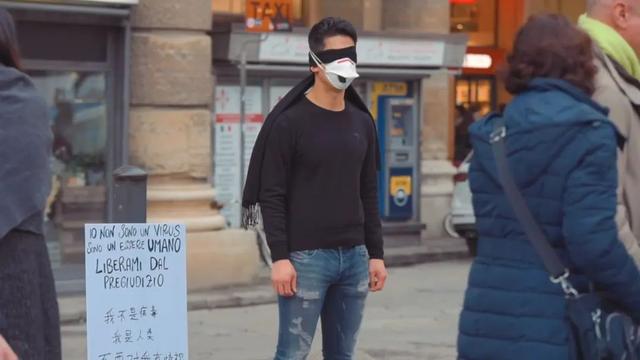
Chinese-Italian Massimiliano Martigli Jiang stands for hours, blindfolded and wearing a face mask, next to a sign that says "I'm not a virus, I'm a human being: Eradicate the prejudice," in Florence, Italy, February 2, 2020. /Associazione Unione Giovani Italo Cinesi
It's commonly accepted that relationships are essential to developing business in China.Long lunches, numerous alcohol toasts and the elaborate gift-giving courtesies around business all attest to the importance of maintaining these relationships. But for many outside of China, these relationships seem to be lacking substance. Often, they are learned dance-steps, tolerated but without genuine meaning.
It takes a crisis like COVID-19 to stress-test the relationship. What will you do when you are asked to assist with sourcing medical equipment, masks, medical aprons and other items? An outright refusal to assist inflicts deep scars.
Have you enquired about the wellbeing of your key contacts and their families, or have your enquiries then shifted quickly to questions about the resumption of supply and trade for your business? Trade will resume, but it may not be on the same terms as before if your questions have revealed you have greater concerns about profits than about health.
Do you call this disease coronavirus or the Wuhan or China Flu? Your choice of terminology can inflict unintended damage on your future business because your Chinese partners are sensitive at this time to the underlying racism in the Western media coverage of the outbreak.
Compare and contrast the commentary you hear in the street and on Western social media with the chatter on WeChat. For your Chinese colleagues this is a national emergency and it is the duty of citizens to assist, to follow quarantine instructions and to avoid spreading rumors and misinformation. There is a clear sense of national unity and pride in the measures undertaken by Chinese authorities.
China's response to the COVID-19 is different to the response to the SARS outbreak. It is an uninvited test of political maturity. And yet, it has been greeted with border closures and racism despite the WHO saying these measures are both unnecessary and counterproductive. The China response stands in stark contrast to H1N1 swine flu which originated in the borderlands of the United States and Mexico, infecting more than 1,600,000 people in 214 countries with a 17 percent mortality rate leading to more than 284,000 deaths.
So, it's crunch time for your business relationship with China.If your relationship is tested and found to be Jiu Rou Peng You (酒肉朋友, or wine and meat friend), then you can expect it to be much more difficult to grow business back to pre-COVID-19 levels when the China recovers. Friends help friends, particularly in times of crisis. Every bit you contribute will be appreciated and remembered.You might not be able to do much, but every bit can count even when it starts just with a change in attitude and a genuine enquiry about the health and safety of your Chinese colleagues.
Daryl Guppy is a national board member of the Australia China Business Council. He is the Australian representative with the Silk Road Chambers of International Commerce and an international financial market technical analysis expert. Chongyang Institute for Financial Studies at Renmin University of China also contributed to this article.
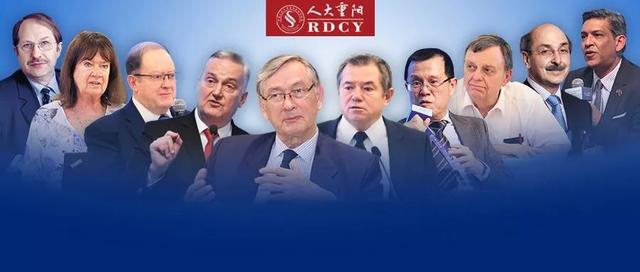
【战“疫”】10位外国政要名流催泪声援,我们与中国人一起……

【老外看疫情】斯洛文尼亚前总统:世界人民与中国人民站在一起(附视频)

【老外看疫情】英国前高官:抗击疫情是当下中国首要任务(中英双语)

【老外看疫情】俄罗斯汉学家:“黄祸论”病毒正在蔓延!(中英双语)
中国人民大学重阳金融研究院(人大重阳)成立于2013年1月19日,是重阳投资董事长裘国根先生向母校捐赠并设立教育基金运营的主要资助项目。
作为中国特色新型智库,人大重阳聘请了全球数十位前政要、银行家、知名学者为高级研究员,旨在关注现实、建言国家、服务人民。目前,人大重阳下设7个部门、运营管理4个中心(生态金融研究中心、全球治理研究中心、中美人文交流研究中心、中俄人文交流研究中心)。近年来,人大重阳在金融发展、全球治理、大国关系、宏观政策等研究领域在国内外均具有较高认可度。
人大重阳
微信号 : rdcy2013
新浪微博:@人大重阳
你“在看”我吗?




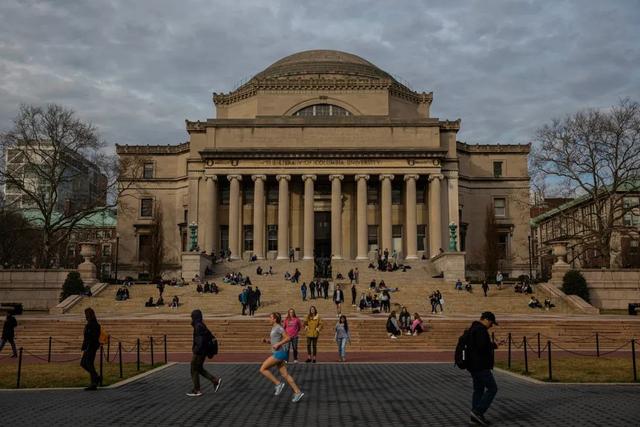




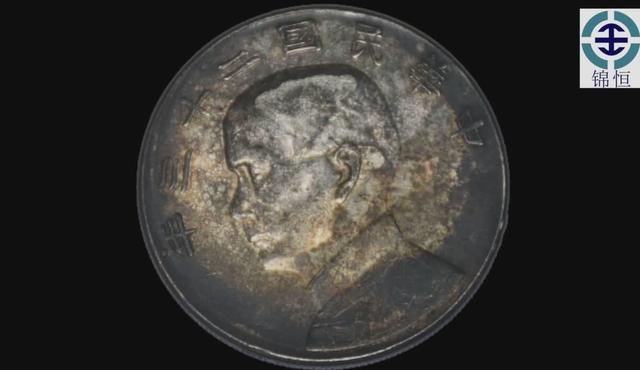
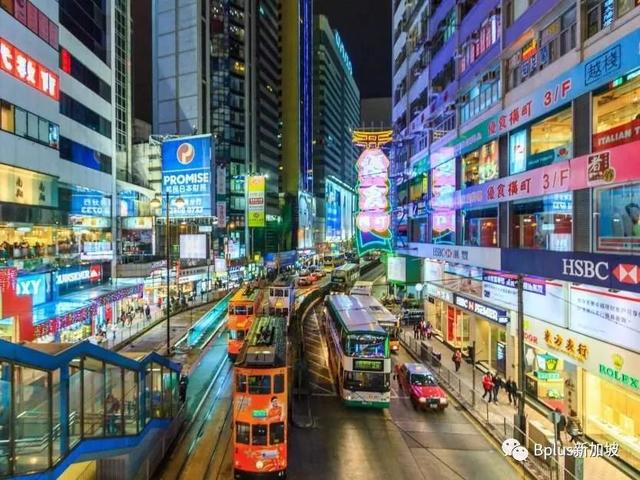
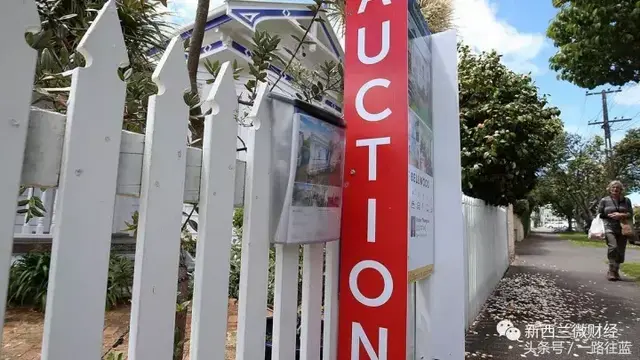
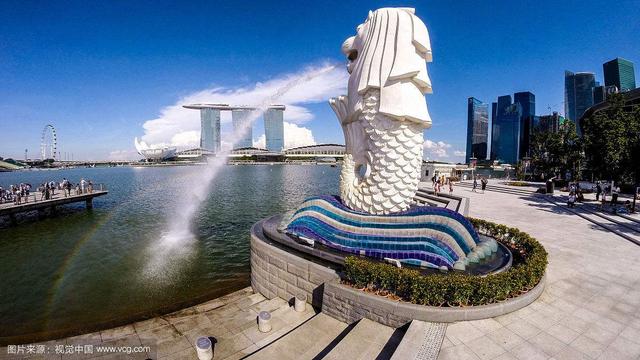










评论